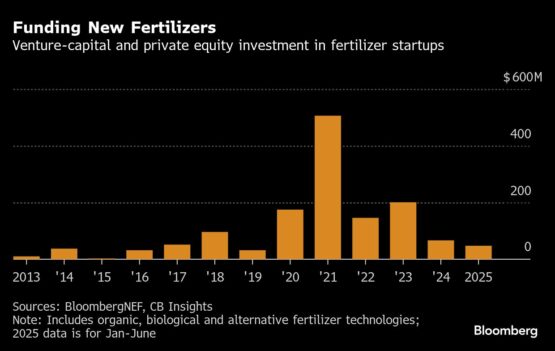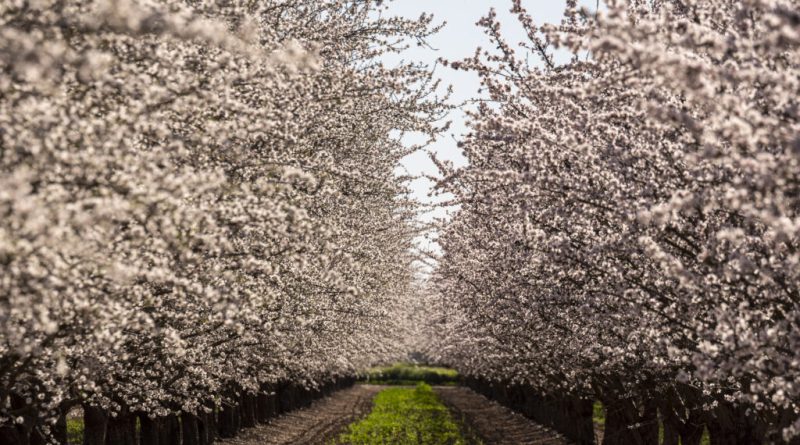This Startup Turns Almond Shell Waste into Eco-Friendly Fertilizer
Chipotle Mexican Grill and Khosla Ventures LLC are part of an investment group providing new funding to a startup that creates fertilizer from ground almond shells.
Nitricity, founded by Stanford University graduates, announced on Tuesday that it has raised $50 million to enhance its production of organic and vegan fertilizer while broadening operations across the US and Europe. The company aims to cater to organic farmers, driven by growing concerns about the environmental and health impacts of agrochemicals, a movement championed by Health and Human Services Secretary Robert F. Kennedy Jr.
“Our aim is to reduce emissions, promote healthy soils, and help farmers increase yields,” said Nicolas Pinkowski, co-founder and CEO. “There is substantial concern in the US regarding chemicals in our food. People are becoming more aware of not just their daily calorie intake but also about ensuring their food is nutritious and safe.”
Conventional synthetic fertilizers are produced through a century-old method that heavily depends on fossil fuels, accounting for about 5% of global greenhouse gas emissions. Excessive usage of these fertilizers can result in nitrogen runoff, which can contaminate air and water.
Nitricity converts almond shells, which are rich in nutrients like potassium, by first burning them and then “brewing” them in water to create a product referred to as Ash Tea. This process utilizes clean energy, and production costs vary with electricity prices. Overall, Nitricity asserts that its emissions are at least 92% lower than many traditional fertilizers.
ADVERTISEMENT
CONTINUE READING BELOW
The resultant liquid is delivered to farmers for dilution and application to the soil. The company aims to compete with manure-based fertilizers, which pose heightened food safety concerns, according to Pinkowski. The production costs are comparable to those of existing organic fertilizers, although Nitricity has not disclosed specific pricing. The Ash Tea has reportedly enhanced yields by as much as 30% in field trials.
Almond shells are abundant in California, the leading almond producer and the home of Nitricity.
The state generates around 850,000 tons of almond waste annually.
Other startups are also investigating low-carbon fertilizer solutions, including Toopi Organics and NPK Recovery, which produce fertilizers from human urine, along with other companies that utilize insects or seaweed.
ADVERTISEMENT:
CONTINUE READING BELOW
Nitricity’s Series B funding round, co-led by Khosla Ventures and the European climate-tech venture firm World Fund, raises its overall funding to $100 million. (This investment marks World Fund’s inaugural entry into the US market.) This figure exceeds the total funding for alternative fertilizer startups reported up to June, as per estimates from BloombergNEF. Other investors include Change Forces.
Investment in sustainable food production has sharply decreased from the peak in 2021, as companies face challenges with cost-efficiency. Non-conventional fertilizers still represent less than 2% of the US market due to lower nutrient content, higher costs, and limited yield results, according to research from Bloomberg Intelligence.

The newly secured funds will enable Nitricity to initiate field trials in Europe, where it plans to utilize local agricultural waste such as wood and leftovers from olive oil production. A new factory is expected to open this week in Delhi, California, with a production capacity of 8,000 short tons of liquid fertilizer annually.
© 2025 Bloomberg
Follow Moneyweb’s in-depth finance and business news on WhatsApp here.

